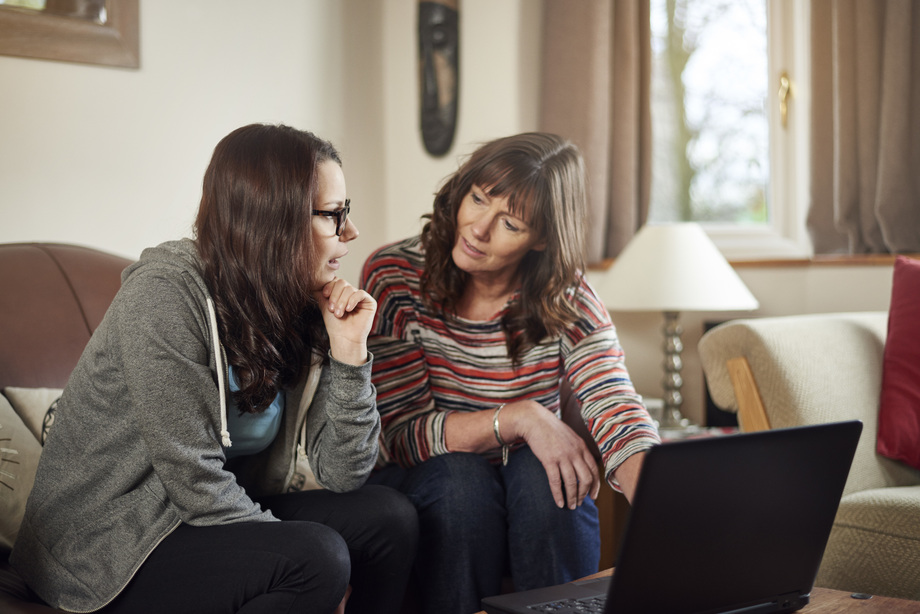Find out if you could be a foster carer
In a few simple questions, you’ll know if you’re suitable to apply to become a foster carer.

The number of teenagers entering foster care after turning 16 has increased from 12% in 2012 to 18% in 2016. It is important that these young people, many of whom have had a challenging start to life, are receiving the best care and support possible to ensure they experience a happy adulthood.
Older teenagers who are transitioning to adulthood need help and support in a number of areas. They are entering a more independent phase in their life and will have new responsibilities such as finding a job, managing their own finances, and taking care of themselves.
Here we share with you a few things that you may need to support an older teenager with.
Opening a bank account
What seems like something quite simple that some children may have had from being 12 or 13 can actually be quite daunting for a teen who has never handled any money of their own before. Many teenagers who enter into foster care come from a background of neglect or have perhaps not had as much parenting as other young people their age. Perhaps they haven’t earned pocket money or received money as a gift on their birthday. The earlier you introduce handling money, savings, and banking to them, the more financially aware they will be.
Most bank accounts will allow you to apply online to open a current account or ISA with them. Please speak to your bank, financial advisor, or Supervising Social Worker for more information on bank accounts for looked after children.
Writing a CV and finding a job
Most young people will write their first CV in school and will have some work experience they can add to it. If a teenager has had low attendance at school they may not have a CV or work experience they can draw upon and so could need your help to create a winning CV. This is where you can provide valuable guidance and be the positive influence they need to get their first job.
To help them gain work experience, you could try encouraging them to volunteer in the local community or help friends and neighbours in their spare time. In 2016 we found that 60% of care leavers aged 19 to 21 were in employment, education, or training thanks to the support and encouragement from their foster carers. You could be the positive change they need.
Cooking a meal
We’ve found that, not just teenagers, but foster children in general can lack some basic cooking skills and kitchen awareness. Many have never cooked a meal by themselves before at all. Showing and teaching teenagers how to cook can be so rewarding, it allows time for you to bond but also gives them the vital skills they’ll need to survive on their own. Introducing home cooked, sit down family meals can be a great way to bond with foster children and provide them with some quality family time with you.
For some simple and low cost recipe ideas to help get the kids cooking visit http://www.bbcgoodfood.com/recipes/collection/healthy-kids
Learning to drive
Turning 17 can come with the responsibility (and excitement) of being able to learn to drive. This can be a big step in a teenager’s life, it holds the promise of more independence and means they may no longer have to rely on others to drive them around or pick them up.
Now, we know that driving lessons cost money, so this is perhaps also an ideal opportunity to put those lessons around financial responsibility and money management to the test.
Passing a driving test can mean a great deal to a teenager, as for many it is the first time they’ve achieved something big, and life changing that they have accomplished themselves.
For more help on learning to drive visit https://www.gov.uk/driving-lessons-learning-to-drive/overview
The dreaded exams
Any older teenagers who attend college or sixth-form will be taking higher education qualifications such as A-levels or GNVQs; all of which are likely to come with lots of coursework, homework, revision and exam preparation. This can be a very stressful time for teenagers and any support or quiet time you can provide will be much appreciated. Just knowing you are there and willing them to do well can make the world of difference in boosting confidence and helping them to feel less alone. Try providing a white board with a revision planner on it, pads, pens and flash cards to help them along.
These are just some of the simple things that our foster carers can do to help the teenagers they care for. If you have any other top tips for helping a teenager on their journey to adulthood, then we would love to hear them. Share them with us on our Facebook page or by emailing [email protected].